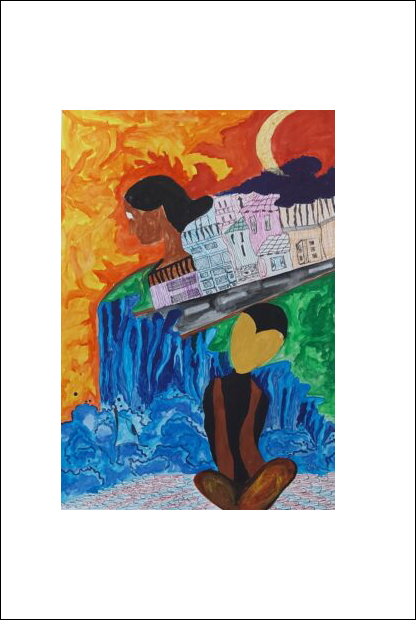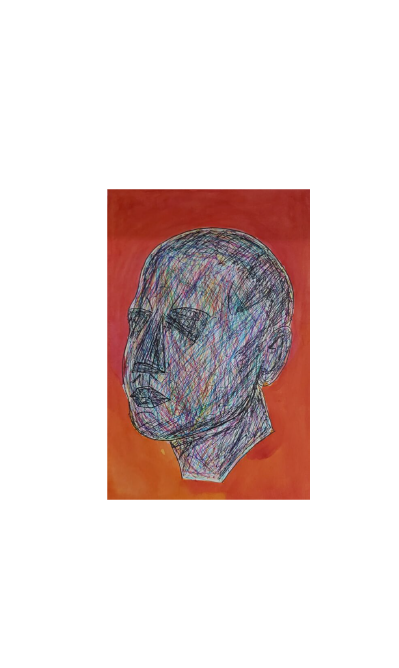 By ANISHA JAIN
By ANISHA JAIN
Being abused at any stage in our life can lead to mental health issues.
(A Scholarly Article Written by a Psychology Student)
Physical abuse is defined as the use of physical force that may result in bodily injury, physical pain or impairment. This could be anything like pushing, pinching, biting, throwing things at you, choking you, pinning you down; the list goes on and on. Just know that if anyone ever does that puts you in physical danger, that is abuse, and it’s NOT OKAY. Anyone can be a victim despite being strong, weak, small or tall. Being abused at any stage in our life can lead to mental health issues.
People who experience domestic violence, men, women or children, are likely develop anxiety, depression and potentially posttraumatic stress disorder (PTSD). Because when someone harms us physically, it can cause us to fear for our life. That’s all it takes for us to be and feel traumatised. It comes with regular PTSD symptoms like flashbacks, avoiding anything that reminds us of the trauma, dissociation etc. But it also includes emotion regulation problems, forgetting traumatic events completely like repressed memories or just blocking it out, feeling very ashamed and guilty for struggling with this and not feeling okay like everyone else. The person even has distorted perceptions of his/her perpetrators. One can also struggle to relate with others and isolate as a result or even have trouble trusting people. And finally, one can lose her own sense of meaning and feel really hopeless.
People who experience domestic violence, men, women or children, are likely develop anxiety, depression and potentially posttraumatic stress disorder (PTSD). Because when someone harms us physically, it can cause us to fear for our life. That’s all it takes for us to be and feel traumatised.
Along with those, those who are physically abused as children can also struggle with depression and anxiety disorders. This occurs because if someone who is supposed to take care of us and love us is hurting us, it can make us think something is wrong with us and something we did. This low self-esteem only feeds the hopeless feeling that can come along with depression and intense worry that we know is associated with anxiety. Physical abuse is connected to alcohol; drug abuse as well as eating disorders.
MALE VICTIM OF DOMESTIC VIOLENCE
Men find it hard to see themselves as victims. They tend to feel that battering is associated with women and not men.
Male victims find it hard to seek help because help is mainly gender-based. They feel that they do not have the right to seek help because they have become part of the problem by defending themselves.
Men who are bisexual or gay believe that they deserve the abuse because of their sexual orientation.
Characteristics of Victims
● Unexplained injuries
● Frequently sick
● Fears intimate partner
● That she/ he does not deserve better
● Blames self for the abuse
● Accept responsibility for his/ her partner’s action
● Accepts responsibility for maintaining the relationship despite his/ her actions
● Spends much energy trying not to anger the abuser
● His secret about the problems in the relationship
● Isolate from family and friends
● Continually hope things will get better
● Feels guilty, depressed, angry and worthless due to the batterer’s actions
● Has to account for every action to the jealous partner constantly
● Children either cling or are disrespectful
EXTERNAL HELP
● Safety and empowerment are the two most widely cited goals of treatment of victims of domestic violence
● What appears to be maladaptive functioning in a non-violent relationship (example co-dependent traits) may be a survival strategy for a battered partner.
● Codependency counselling may also blame the client for being battered in the first place since the relationship was co-created
● be clear that although it takes two to be in a relationship, it takes only one to be violent, and only the violent person is responsible for the violence
LOSSES ASSOCIATED WITH DOMESTIC VIOLENCE
● Sense of safety
● ability to trust
● relationship with the abuser
● relationships with other people 1. Isolation 2. abandonment
● Hope for what love will be
● Time
● Finance
● Self esteem 1. From what the abuser said, 2. for not leaving/ protecting children
● Physical (abilities and appearances
HOW DO I KNOW WHEN HE’S CHANGED?
● Have the violence and threats stopped?
● Are you afraid when you are with him/her?
● If he/ she is able to be angry without becoming verbally or physically abusive?
● Are you able to express anger without being attacked?
● Are you able to make decisions about your own life without fear of retaliation?
● Is he/ she able to hear and respect what you are saying even though she/ he may disagree?
● Can he/she negotiate with you without being attacking or controlling?
● Can he/ she respect you’re right to say no?
● Is she/he able to let you know what he/she is feeling most of the time?
● Does he/ she blame you for his/her anger, frustrations and violence
IMPACT OF DOMESTIC VIOLENCE ON CHILDREN
● Witnessing can mean seeing or hearing the violence
● Observing the aftermath of physical abuse such as blood, bruises, tears, torn clothes and broken items ● Awareness of the tension in the house such as their parents’ fearfulness when the abuses car pulls into the driveway
● Children who are exposed to back pain become fearful and anxious
● They never know what will trigger the abuse, and therefore they never feel safe
● They always fear it for themselves, their parents, their pets and their siblings.
● They may feel worthless and powerless
● Emotional reactions of fear guilt, shame sadness, depression and anger ( at both the abuser for the violence another victim for being unable to prevent the violence)
● Seep disturbances
● stomach ache
● Headaches
● Bedwetting
● Loss of ability to concentrate
● Acting out
● Withdrawal
● Anxiousness to please
● Seeing the victims treated with enormous disrespect teachers’ children that they can disrespect a partner the way the abuser does
● Witness abuse have an increased risk of being abused
● Use violence to express themselves displaying increased aggression with pears on mothers
● Developmental delays in speech, motor or cognitive skills
TREATMENTS
● Talk therapy- Talking through the trauma in detail is important to give your brain another chance to process all the event you went through so that it no longer affects day-to-day life. Once we process through, we won’t have flashbacks or body memories like we may be experiencing as a result of our trauma.
● CBT (Trauma-focused)- working on relaxation training includes deep breathing, progressive muscle relaxation. It helps with emotional regulation, which is like identifying our feeling and then having tools to manage all that the survivor may feel.
● Cognitive coping strategies- identifying negative thoughts and replacing it with positive ones.
● EMDR Treatment (Eye Movement Desensitization and Reprocessing) When we are putting memories together like those marbles, it might have just shattered on the floor because we didn’t get all the time we needed to process it or it was just too much for our brain at that time. So doing all this treatment whether it’s trauma-focused CBT or talk therapy.
We’re giving our brain some time to pick up all those splinters, form them into marble and roll it away, or not just dancing around all the splinters and stepping on them sometimes
(The author is a Student at Delhi University. The views expressed are her own.)












